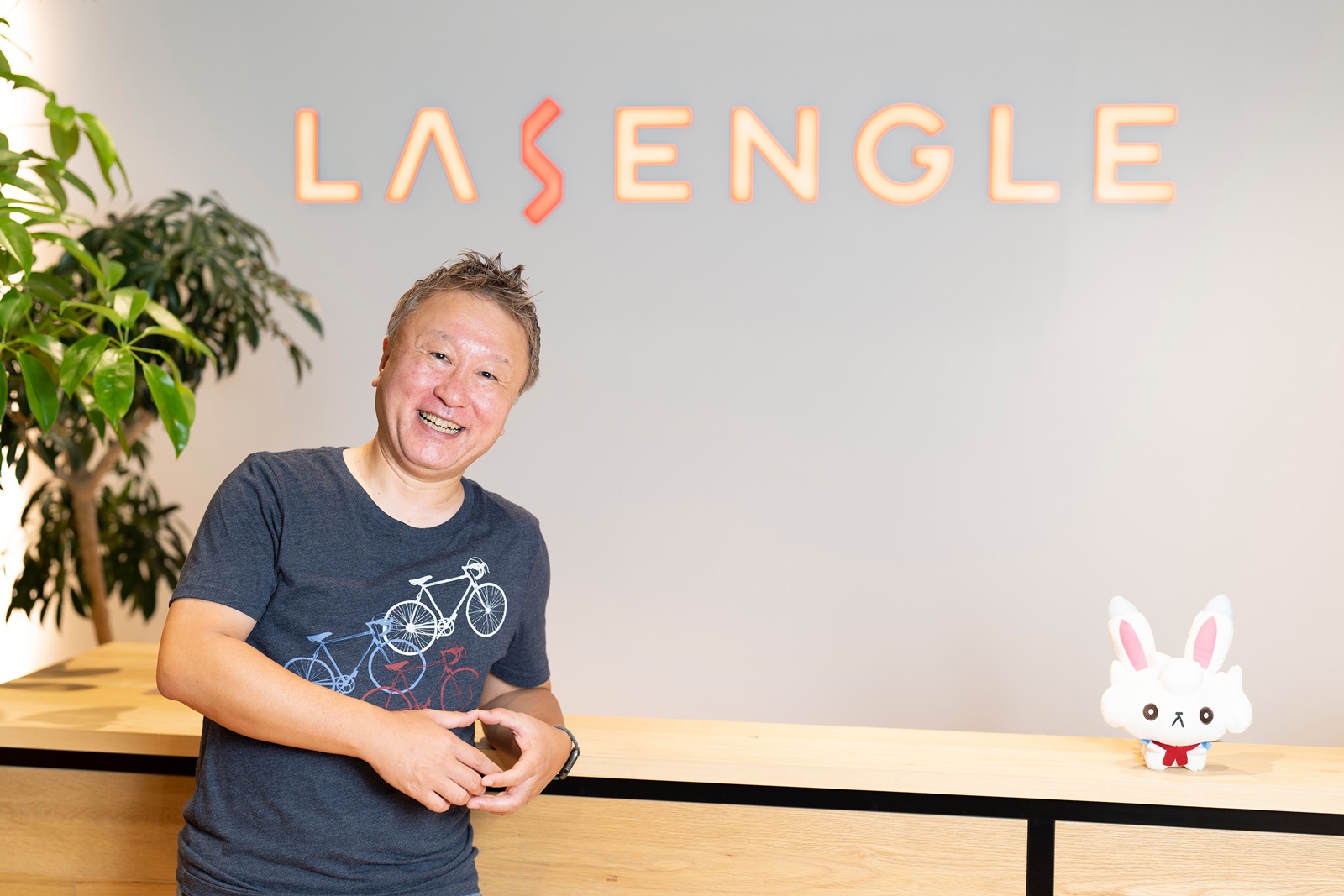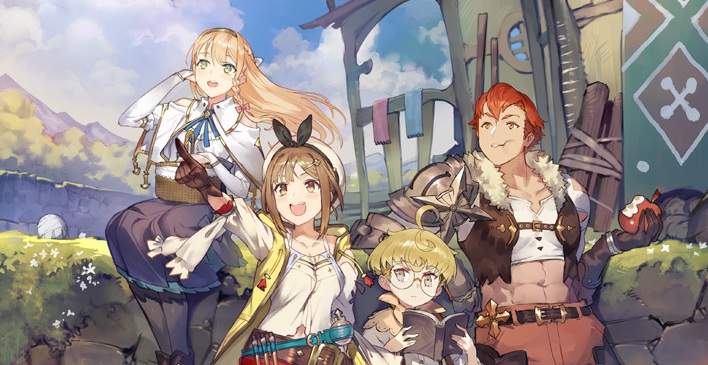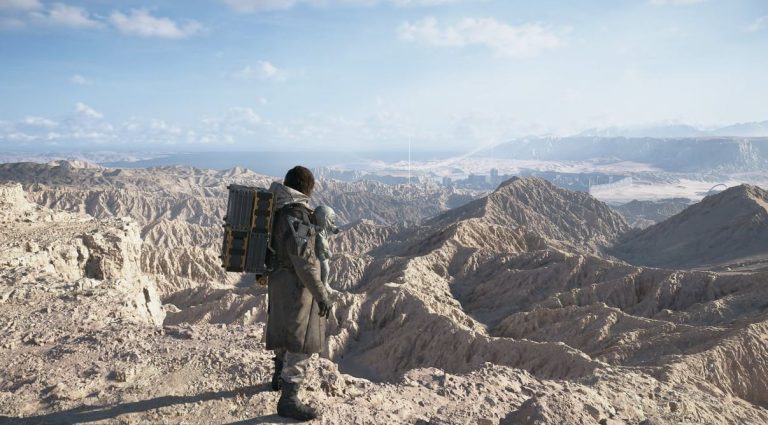In May 2021, former Capcom executive Yoshinori Ono attracted a lot of public attention when he became the president of Delightworks. In February of this year, the company transferred its game operations to a new company named Lasengle, making a fresh start as an affiliate of Aniplex. The company continues to be led by Ono and is currently recruiting members on a large scale.
While it is known that Lasengle is responsible for the development of Fate/Grand Order (FGO), there is still much about the company that remains a mystery. Therefore, we decided to ask Ono why he became the president in the first place, what he brought to Lasengle, and what his goals are for the future of the company.
*This article is based on a sponsored interview posted to the Japanese edition of AUTOMATON on November 2 (JST).
Reasons for joining Delightworks
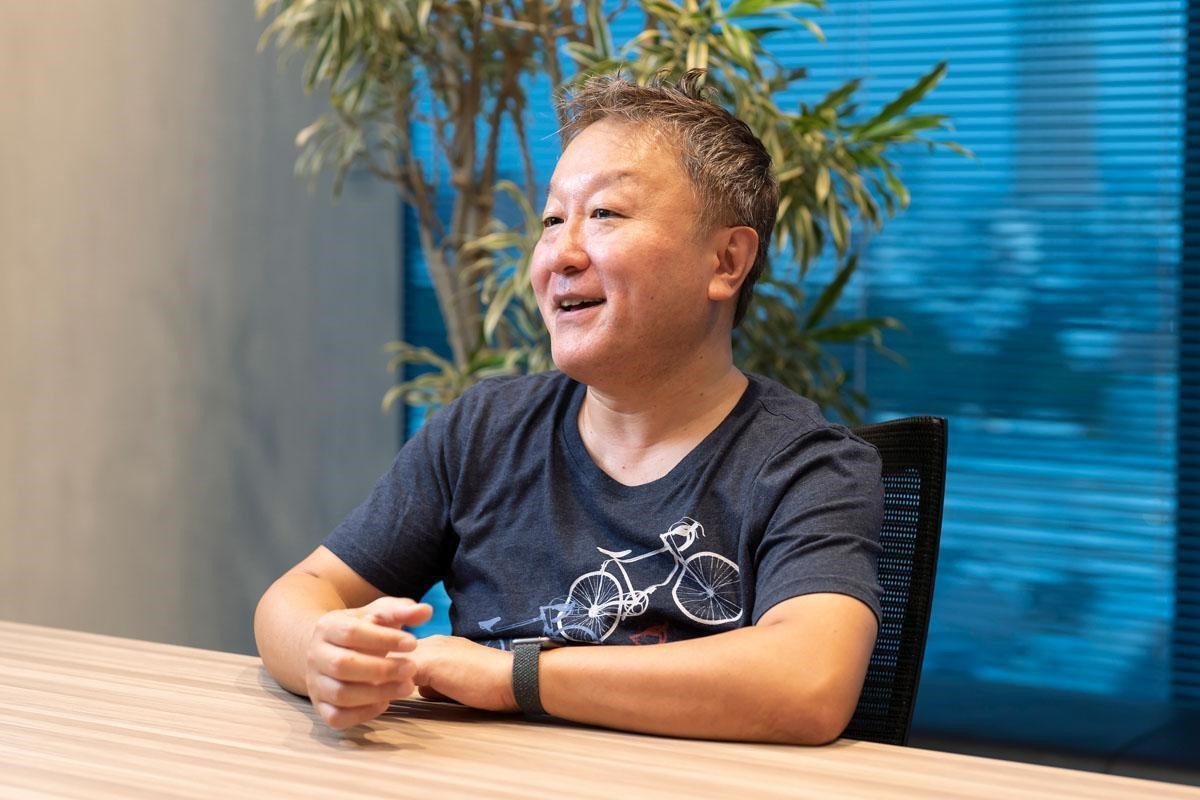
――Please introduce yourself and tell us a little about your background.
My name is Yoshinori Ono, and I am president and representative director of Lasengle. Before coming to Delightworks, I worked at Capcom for nearly 30 years. From morning to night, I spent my time creating games where people would beat each other up. In my later years, I was also the one responsible for going online to read all the bashing—I mean, constructive criticism made by players.
I’m getting older now, though, so I had sort of settled into an executive position at my previous company. As a result, opportunities to be directly involved with the creation process began to grow fewer and farther between. After speaking with the president of my previous company about whether it would be a good idea for me to continue as I was, I made the decision to leave the protection of the calm bay I’d found myself in and venture out into the vastness of the ocean.
――The ocean, huh?
As soon as I did, the pandemic hit. My family said it may not have been the best idea to quit my job. Despite the bad timing, however, I still was optimistic that I would be able to see and experience things I hadn’t in the last 30 years.
I also knew I really enjoyed games, and I wanted to challenge myself by looking at them from a different angle. Fortunately, I had people from various companies reach out to speak with me. Among them was chairman of Delightworks, Akihito Shoji, who contacted me to say, “If you want to create a game, let’s work together.” For a time, I was on the fence about what to do. Even though they had a great track record, I found a few negative remarks here and there at the time when searching their name. This meant taking the plunge would require a bit of courage on my part, although I had dealt with plenty of that sort of thing in my day as well. (Laughs)
Shoji invited me to join him, saying, “I would like to work together with a friend, as well as someone more experienced in the game industry than myself. Joining Delightworks is likely to give you another opportunity to do the things you’ve always wanted to do.” After that, I decided to take him up on the offer.
――Before you joined the company, what was your opinion of Delightworks?
They seemed to have faced quite a few challenges since being founded. Things weren’t going very well after their initial launch, but I’d say things started getting back on track for them around the middle stages of the first chapter of FGO. As someone looking in from the outside, I got the impression that the first three years were a difficult venture of trial and error.
On the other hand, I also felt a strange enthusiasm from the members; a drive to keep fighting. It reminded me of the energy I had back when I first started in the game industry, staying up all night fixing bugs for Darkstalkers. (Laughs)
It was tough at the time, but it was also fun, and I felt that same level of enthusiasm from Delightworks. The company has grown steadily since then, and despite the setbacks along the way, I’ve watched their games continue to grow as well. That was my impression as an outsider looking in, but it also turned out to be true.
Why working at a Japanese company is better suited for him
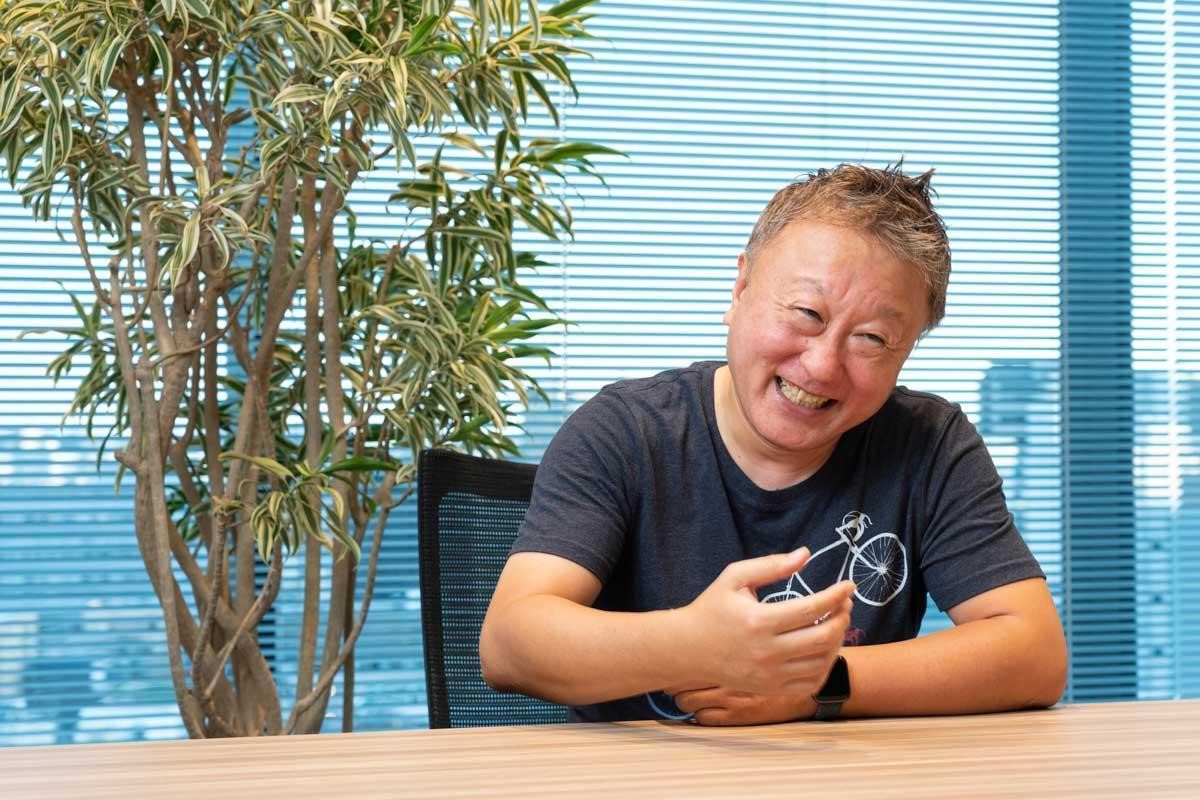
――What made you choose Delightworks from among the many options available to you?
There is a certain meticulousness to Japanese game creation that I admire. This is what made me decide to challenge myself by working for a Japanese company.
While in charge of Capcom’s Vancouver studio, I was involved with many titles that required working alongside teams from overseas. Based on all my experiences with people from different countries, I decided that working on Japanese titles would be the best way for me to fully demonstrate my personal gamer’s DNA, cultivated over my lifetime. To add to that, creators who grew up with the same TV shows, reading the same manga and creators who love Japanese culture would be more likely to understand cultural references. In that sense, it would simply be easier for me to relate to the people at a Japanese company.
There was one other major reason I decided to work for Delightworks—I wanted to try working somewhere with more flexibility. The larger a corporation gets, the less flexible things become. Of course, smaller companies have a disadvantage when it comes to power and leverage, but I considered several things such as how I could best demonstrate my abilities, what I had to offer, and whether we could walk the same path or not. Where would I enjoy myself more? Where could I be the best version of myself? After considering these questions, I concluded that somewhere with more flexibility would better suit my needs. As for the power and leverage, I could just find a way to boost that later. The thought that I might soon be able to wake up each day and have the freedom to think, “Maybe I’ll try doing this today,” definitely helped me reach my decision.
I knew working for Delightworks was going to be tough, but I was prepared for it. Still, I was hopeful the joy of pioneering a new frontier would win out against the difficulties that were to come. I was also drawn to the idea of working with a company full of like-minded people who loved games as much as I did.
When I finally did join the company, the situation wasn’t as bad as the impression I’d been given from all the things I’d read online. Due to the popularity of our titles, we were surrounded by a passionate fanbase. However, the company’s continued efforts to meet fans’ expectations had been somewhat unsuccessful. The company and the fans were not on the same page. Nevertheless, I soon came to realize the relationship of mutual trust between the company and the fanbase wasn’t completely gone.
At this company, I can create the kind of games I’ve always wanted to. It’s also become a place where I can take the experience I’ve cultivated over my nearly 30 years in the game industry and use it to give advice and guide others. Those are the events that led to my decision to give this place a try, and the announcement in May of last year that I would be taking over as president.
“I wasn’t told I’d be president until after joining the company”
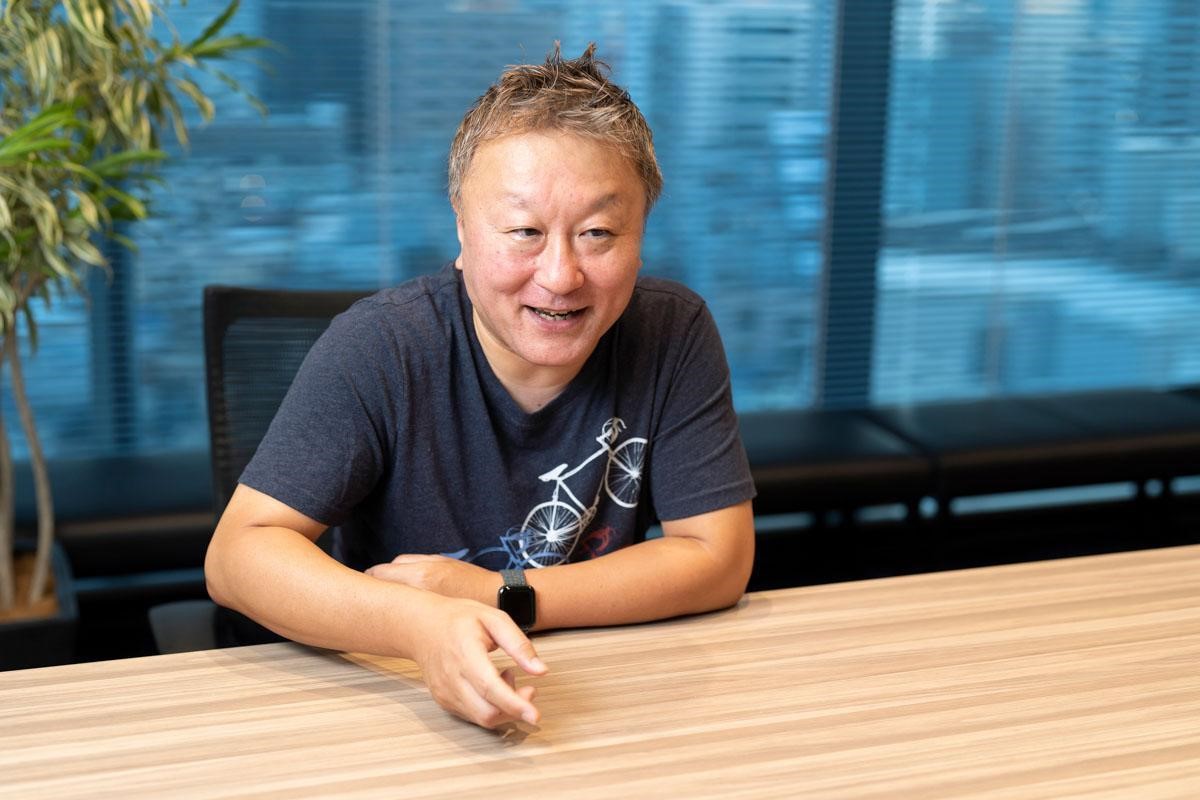
――Was the offer you received contingent on you accepting the role of president?
Believe it or not, they kind of tricked me. I wasn’t actually told about becoming president until after joining the company. (Laughs)
――Wait, what?
I’d only been working at the company for a few months when I was told they were assigning me to the role of president. A few days later, all the employees were gathered in the main hall of the office where Shoji told everyone he was considering making me president. Before that, I’d had no intention of taking on that role. My plan was to support the development team whenever problems arose and to teach the know-how I’d learned over the years about how to prevent problems from cropping up during the creation process.
On a slightly different topic, I didn’t play FGO until after joining the company. I didn’t hide this fact, and actually told Kinoko Nasu—the creator of the Fate series—and the other creators that I was going to begin playing the series and sharing my impressions with them along the way. As I did so, Nasu and I grew close enough that we began having regular talks. Nasu would even chat with me about fighting games. As we continued to speak and I played through FGO, I became a huge fan of the series myself. I began to understand the intrigue of Kinoko Nasu’s work, and why tens of millions of fans are constantly waiting anxiously to see what’s next. The team had done a wonderful job of planting seeds among the gamer community.
However, the challenge became a question of how best to breathe life into these seeds. The members of Delightworks are excellent, but I began to wonder if their methods of making content were leading to a gap between what the fans were expecting and what they were actually getting for some titles. This was likely the reason negative reviews and sentiments were being made in the first place. I thought taking on the role of trying to improve such things could be done regardless of whether I was president or not.
When I assumed the role of president, I suggested to everyone that we draw a hard line between the Delightworks of the past and the Delightworks of the future. I made sure everyone knew I wasn’t simply going to throw out all their amazing accomplishments up until that point, but I also wanted to encourage them to start off on a new foot. I asked for everyone’s help in working together so that Delightworks might evolve into something better. That was my first message as president.
Surprised by the enthusiasm of the staff
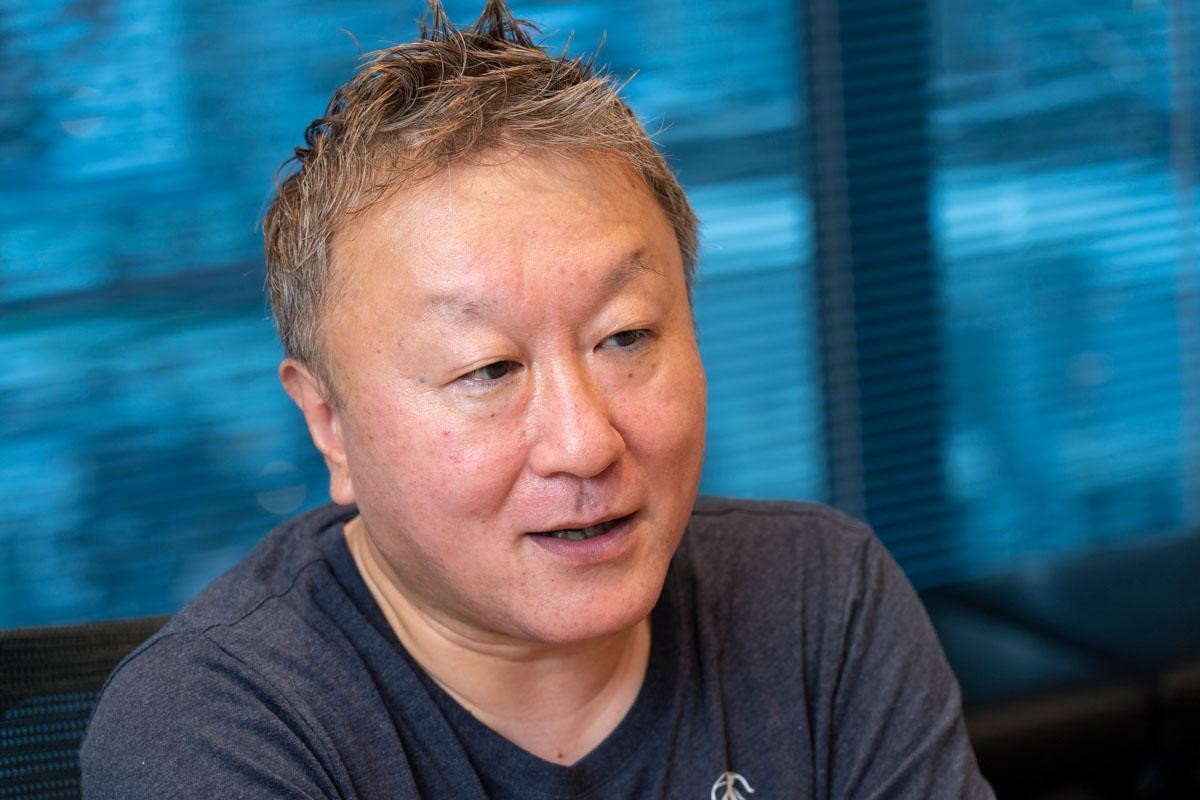
――After joining the company and seeing things from the inside, what was your impression of Lasengle (formerly Delightworks)?
I used to have this flawed idea that the people who worked for mobile game companies were more about the business side of things—simply making games for the sake of making games. However, everyone’s passion has shown me I could not have been further from the truth. It’s true that mobile games are very different from the types of games I’ve worked on in the past, but the people here really do breathe life into the games they create.
In a sense, the titles I’d worked on up until this point were also mostly character games, where each character is meticulously crafted with a variety of unique attributes. I thought my passion for making characters was quite unmatched, but Lasengle’s passion turned out to be even stronger.
If you take the time to properly think about it, you’ll quickly realize there’s no possible way anyone without proper passion could have created such an influential game. FGO has both the passion and enthusiasm necessary to make for true entertainment. It isn’t the sort of game that arises from cold, calculating, business-oriented thinking.
On the other hand, there were some elements of its creation that were a bit unpolished. I recognized these as places I could offer my advice as the new resident “aged veteran.” While doing my best to preserve everyone’s creative methods, I was driven by the urge to guide them in a better direction. As the saying goes, you’ve got to open the lid if you want to know what’s inside.
As the president, I must think carefully about how best to continue creating games that are full of passion, while also maintaining a healthy work environment. As a result, I’m constantly reviewing and reworking the systems we have in place. So, while I moved to a new company to focus more on creating games, I don’t think what I’m doing now is much different than what I was doing with Capcom in Osaka. (Laughs) Still, the systems being utilized have definitely been improving. It’s quite fun watching how quickly things can change now that our creation processes and speed have become so much more flexible.
Another thing that surprised me was how much passion both Kinoko Nasu and Takashi Takeuchi have. I’ve been involved with several projects that use existing IP in the past, but these two exhibited levels of enthusiasm toward their projects that far exceeded those of most other creators. They seemed much less concerned with questions like, “how can we make our designs look as cool as possible?” and instead were always having passionate discussions regarding questions like, “how do we make sure the players have the most fun?” or, “what will the players think if we do this?” I believe that is also why the team was able to work so earnestly on the development of FGO despite the obstacles they faced.
On top of that, the festival events were always overly lavish, to the point that the cost performance did not make sense. To be perfectly honest, I could never have even considered doing such a thing at my previous position. Although, since joining the company, I’ve come to realize that the level of fan engagement that can be felt during these events is a huge part of the FGO culture. I became keenly aware of how much life everyone was bringing to the game through these events.
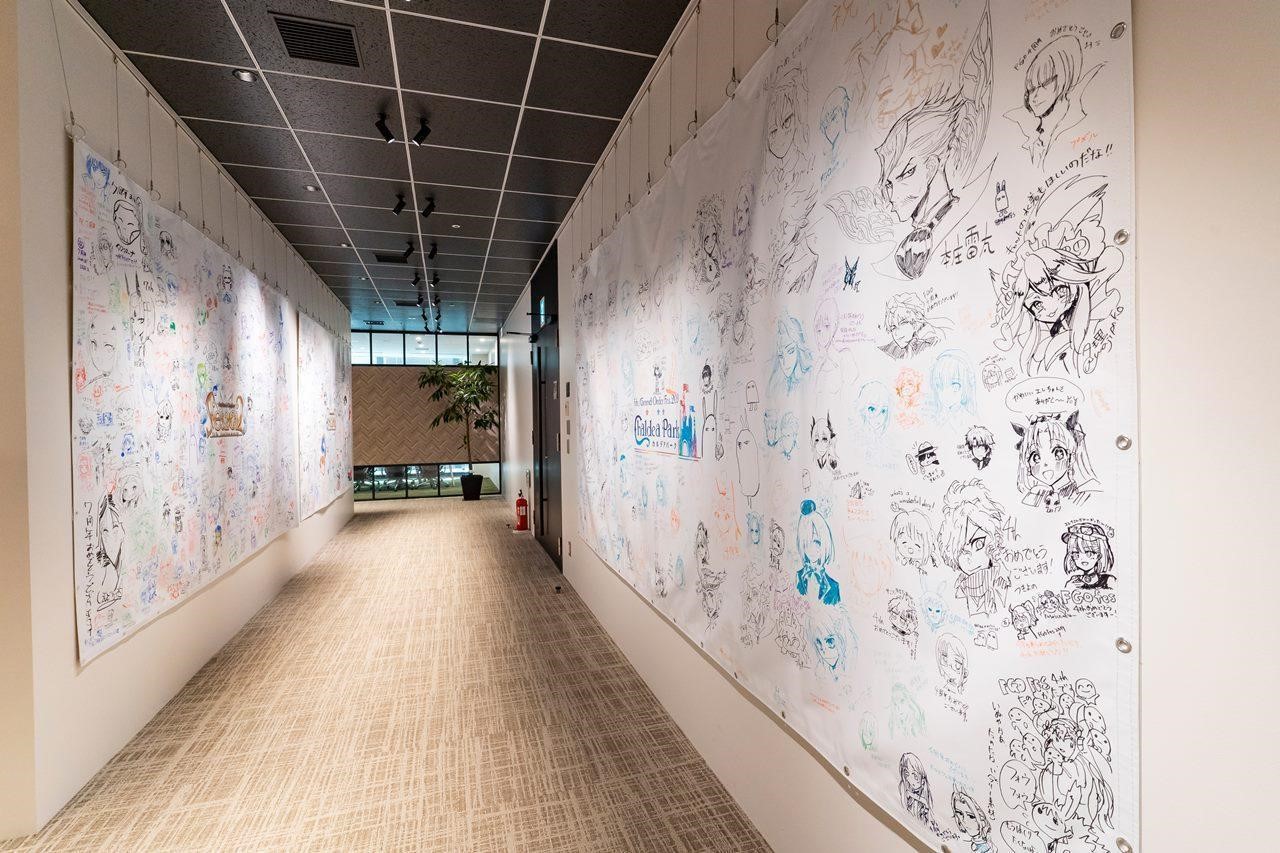
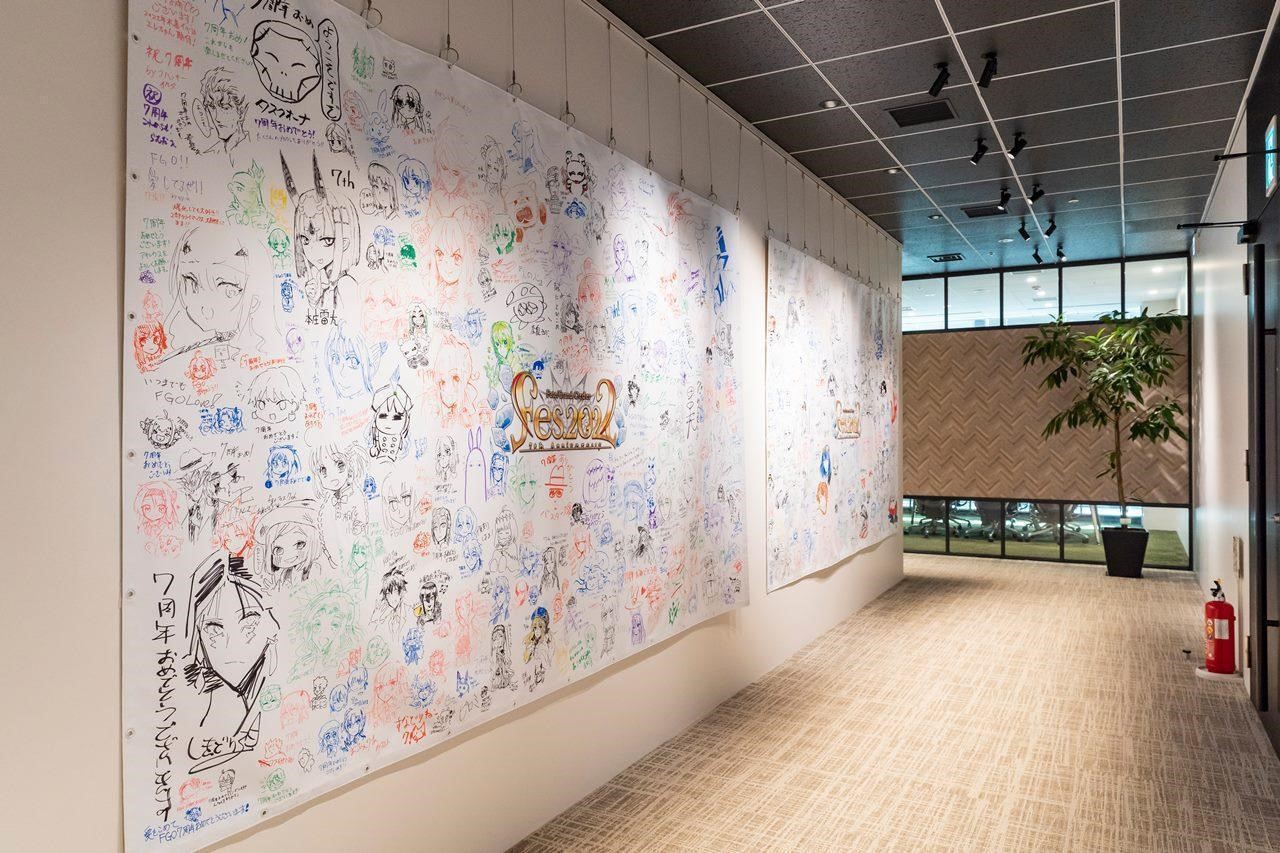
*This message board on display in the Lasengle office gives you a sense of the overall office culture.
First comes study and preparation
――Are you currently involved in FGO?
I’m watching over them from a distance. I may have been here a year and a half now, but I feel I still haven’t been able to fully familiarize myself with the essence of the work quite yet.
What is the true essence of this series? What is it that makes fans fall so deeply in love with it? I don’t feel as though I’ll be ready to make judgment calls for questions such as these until I have a deeper understanding of the series myself. Once that happens, I should feel more comfortable giving my input on the game’s development. For now, however, the best thing I can do is focus on making the creation process more efficient.
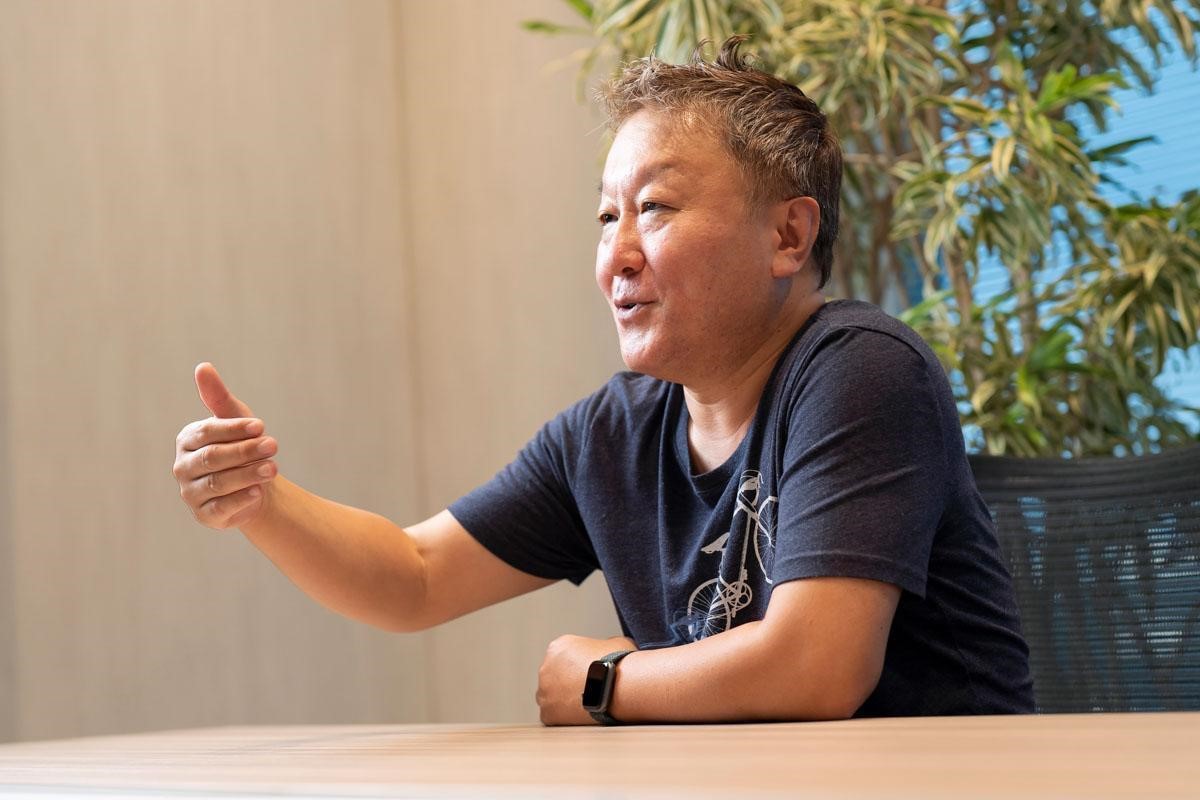
――Depending on the title, do you give advice on development and management?
I do. For example, I gave quite a lot of feedback on Melty Blood: Type Lumina. In the initial stages of development, game developer French Bread, Aniplex, and Delightworks were each working quite diligently. Having said that, there were some elements that just weren’t meshing well. I started wondering why other titles were experiencing such issues when FGO seemed to be going so smoothly, so I joined the team and started working hard alongside everyone else.
――From what we can tell, the development of Melty Blood: Type Lumina finished strong. The update schedule seems to be going smoothly as well.
I am glad to hear you think so.
Ono’s Ten Commandments of what you should never do
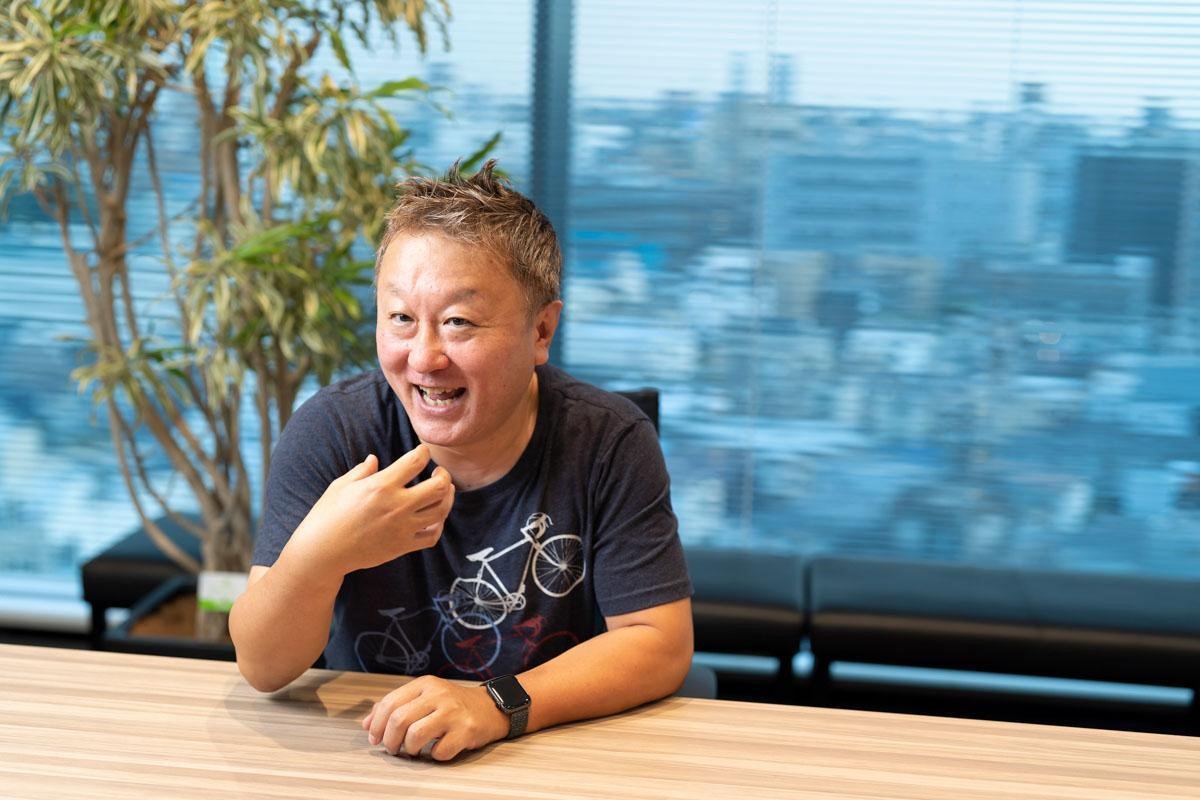
――Is there anything in particular you consider most important when it comes to creating games?
I have a sort of “Ten Forbidden Commandments”. There’s, “Don’t make something if nobody likes it,” “Don’t make something if nobody is passionate about it,” “Don’t continue something if nobody finds it interesting,” and, “Don’t make something you can’t see having an audience,” to list a few. Unfortunately, there have been projects in the past that were started despite having these problems from the get-go. In order to create games that people are going to want to play, I think it’s important to have a list of things you shouldn’t do, and then actually make sure to refrain from doing them.
I’ve noticed these Ten Commandments have begun to permeate Lasengle. This makes me want to power up my “I want to create something new” engine sometime around the end of this year or at the beginning of next year. As president, all I can currently do is work on improving the administration on the backend of things. Nonetheless, what I really want to do is create, so I’m also looking to recruit people to help with that. One day, I hope to get down in the thick of things so much so that everyone starts telling me to get back to doing my role as president.
――That being said, you must have received a bit of harsh treatment when you first joined the company, right? You mentioned you didn’t start playing FGO until after getting hired. What was the reaction of those around you when you joined the company?
I still remember being treated a bit standoffish by a few members when I first started. If you asked them now, though, I’m sure they would all insist that wasn’t the case. (Laughs) Of course, that’s a perfectly understandable reaction. If the positions had been reversed, and someone joined Capcom without ever having played any of the Resident Evil or Street Fighter games, I’d likely have wondered why they’d joined the company as well.
At any rate, their reactions weren’t outside the scope of my expectations. I was prepared for a bit of animosity. However, I didn’t want to rub anyone the wrong way, so I tried to convey that my hope was simply to try and pass on the knowledge I had gained from my years of experience in the industry. I also asked for a bit of patience to allow me time to catch up with the seven years’ worth of FGO content. Then I bought a bunch of prepaid cards, charged them up, and asked everyone to wait for me. (Laughs) It felt a little like asking to come inside somebody’s house, but then hanging back in the entryway for a while before finally taking off my shoes to join everyone in the living room.
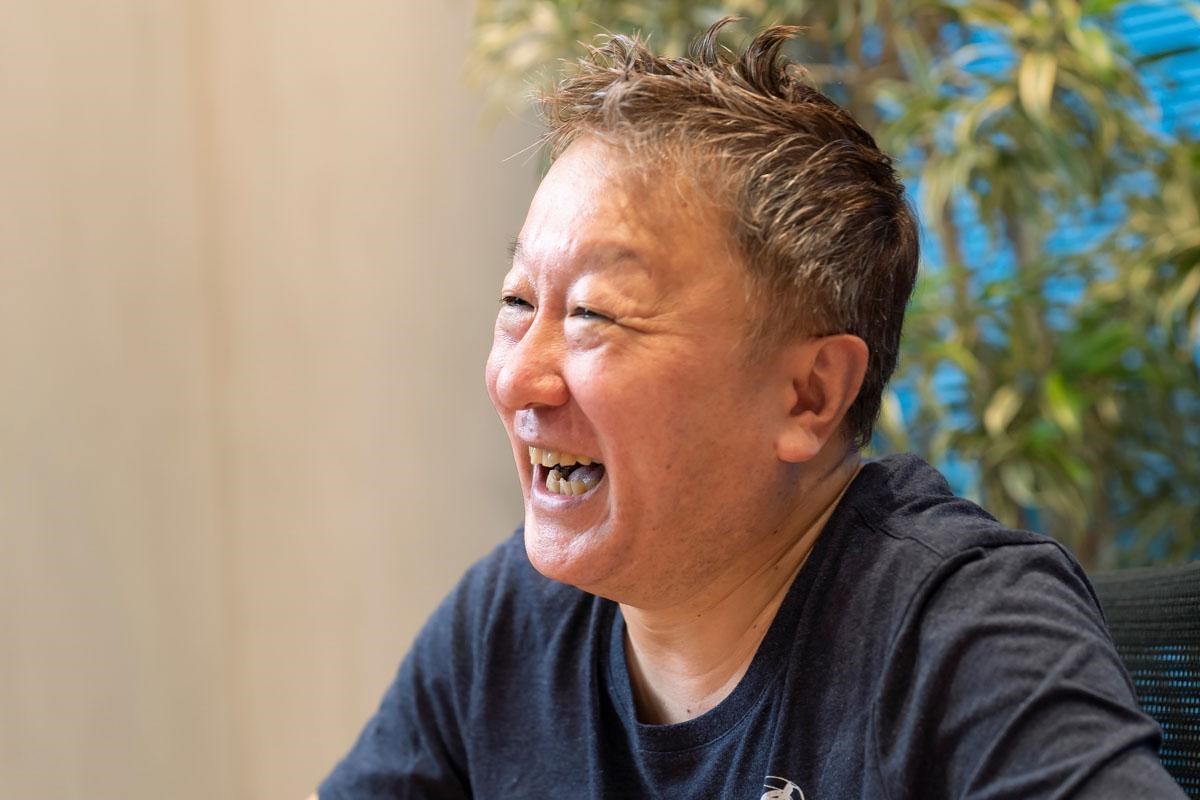
For the first few months after I joined the company, there were a few general managers who never came to speak with me. But despite that, as I talked more about the future, we were finally able to start a dialogue. They told me things such as, “I was thinking it would be best to do that as well.” My first thought was, “If that’s the case, then why didn’t you come speak to me sooner?” (Laughs) After that, we were able to speak more and more about a number of different topics. “There are problems with operations and development, so let’s improve them. If we do that, everyone will end up with more free time on their hands,” for example.
The more free time you have, the more time you have to take on new challenges. Indeed, one of the new initiatives we implemented was the allocation of 100 million yen (about 750,000 USD) to be used for the initial costs of creating new games. We told the employees the funds could be divided up in whatever way they wished—and we were going to make sure the entirety of the 100-million-yen budget was used—then asked them to start submitting their proposals. In the end, we didn’t actually end up using all of it. (Laughs) However, our main purpose in doing this was accomplished. We wanted to make sure everyone on the team knew they were welcome to take on new challenges should they find themselves with extra free time on their hands.
When I first took over as president, I also talked about doing the four C’s: Change, Challenge, Chance, Confide. I encouraged everyone to cycle through these four C’s while working on both FGO and other titles. It was around this time that I started opening up more with everyone at the company.
――So, things started looking up after about three months at the company?
That’s right. I wanted to be optimistic, so I took this as a sign I was finally able to dispel the team’s wariness of, “this guy seems out of his area of specialty. I hope he doesn’t do anything strange,” and turn it into more of a “some weird old guy is here to make games with us.” (Laughs)
Be a creator
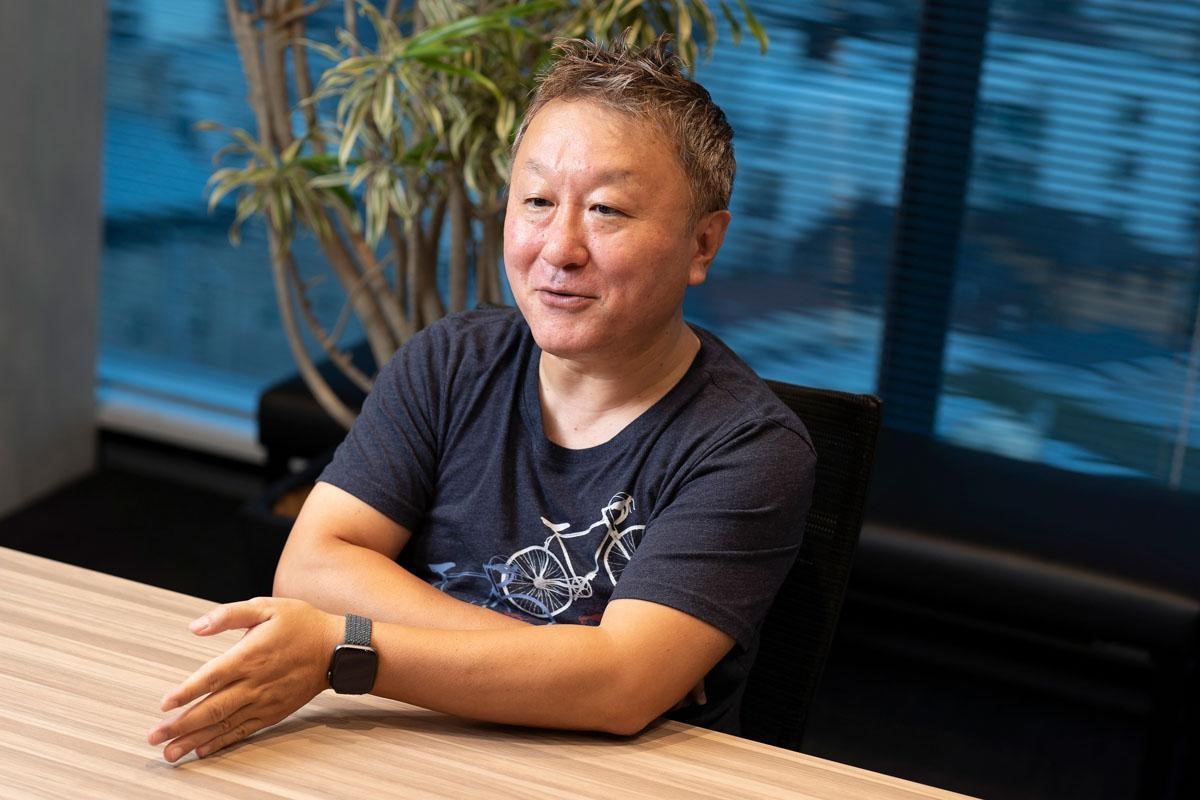
――I have heard you often tell the general managers to “be a creator.” Would you explain what you mean by this?
When working with existing IP, especially with highly creative people like Nasu and Takeuchi, it’s easy to get stuck in the role of catcher. Although, creators like Nasu are the type who like to play catch, not just be the ones always throwing the ball.
In order to play a proper game of catch, we must also be creators. I believe people like Nasu like it when those they work with can come back and say things like, “I want to try this next time,” to think more from the users’ perspective and come up with ideas the fans of the Fate series would enjoy.
Personally, it was a good learning experience for me to see how busy things are with the live service type titles. It feels almost as if the team members are constantly being chased by an air of busyness. That’s just another reason I want the more experienced developers, the ones leading the projects, to be creators first.
If you’re going to help create something, don’t just follow someone else’s lead and do what they say. I would much rather have everyone consider what it is they think they should do to make the project better and share those ideas with the team. Doing so will ultimately help improve the overall atmosphere of the company and help convey that same atmosphere to the players as well.
Games aren’t food, so ultimately you don’t need them to survive. That’s precisely why games need things like the passion and love of the creators. Without that passion, a game won’t last in the players’ memories even if it ends up selling well. And our goal is to create memorable games, not ones that will be easily forgotten.
If you’re going to create something, the first thing you must do is be able to convey what it is you are trying to achieve. We can then evaluate that internally and work on improving it. A creator needs to have a clear idea of what it is they would like to accomplish. If they start receiving critiques while they are still unsure of their goals, then it is much more likely the project will end up becoming more of a business-oriented title. This lack of passion will then translate into the game and be felt by the players.
Why write impressions of indie games on a blog?
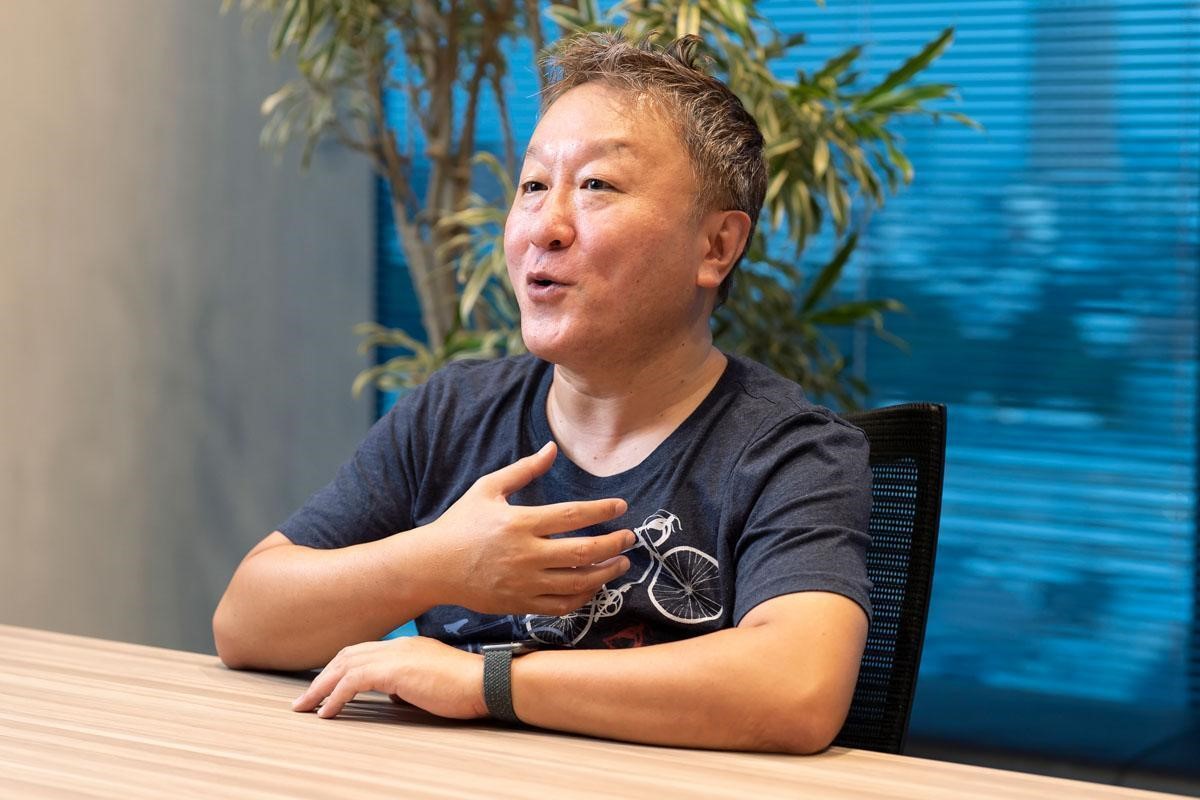
――You also write a blog and post about what’s going on at Lasengle as well as impressions of games you have been playing, particularly indie games. What is your intention with these types of posts?
If you do a search for “Yoshinori Ono,” you’ll get a mountain of results. However, I like to think that maybe somebody will see that I play a lot of games and perhaps become interested in us. We also have a lot of members in the company who work remotely, and since we don’t get a chance to speak in person, I see my blog as a way to help show them a little more about what sort of person the “old guy who’s always talking during video calls” is.
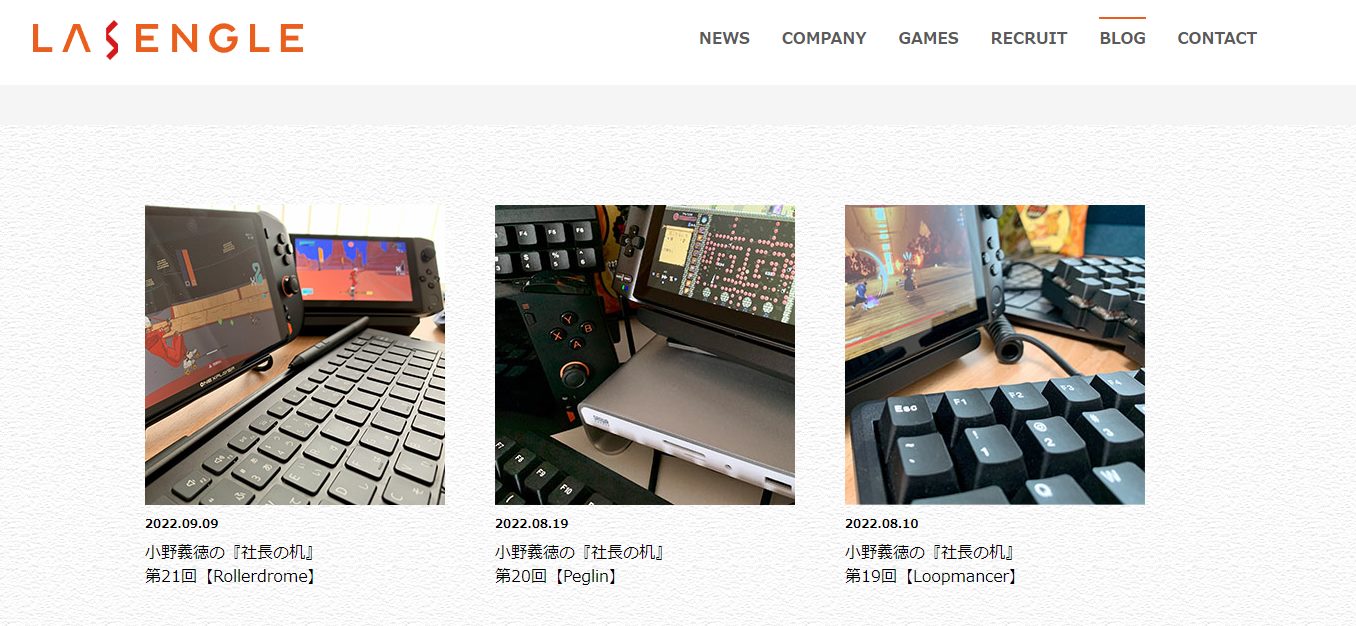
I don’t just play indie games, of course. I also play a lot of major titles as well. However, if I’m going to invite like-minded people on board, I think it’s important that my messages inspire a sense of kinship. For that reason, I thought it would be best to get a sense of the passion small indie groups and solo developers have, as well as get a feel for the differences in sensibilities between our generations. If I have the chance to make others think, “I may not be thinking of joining this company, but I’d still like to hear what they have to say,” then it might help change things. All that makes it sound a bit like I do this solely for the purpose of learning and recruiting, but don’t get me wrong. For me, playing games is as natural as breathing, and so I want to spread that kind of thing as well. (Laughs)
――It certainly feels as though the way Lasengle communicates with the outside world has changed since you became president. Is there anything in particular you are aiming to accomplish through these communications?
I aim to be honest and upfront about how I confront the challenges of game creation. By doing so, I hope to reduce the sense of distance we have with players and creators. I also want to create an inviting atmosphere here at the company that will help draw in more people with whom we can create games. I want to gather people together who enjoy both playing games as well as creating new things. I don’t want people to work here just because they see Lasengle as a profitable company where they can make money.
Creating a team that shares a vision for the next five to six years
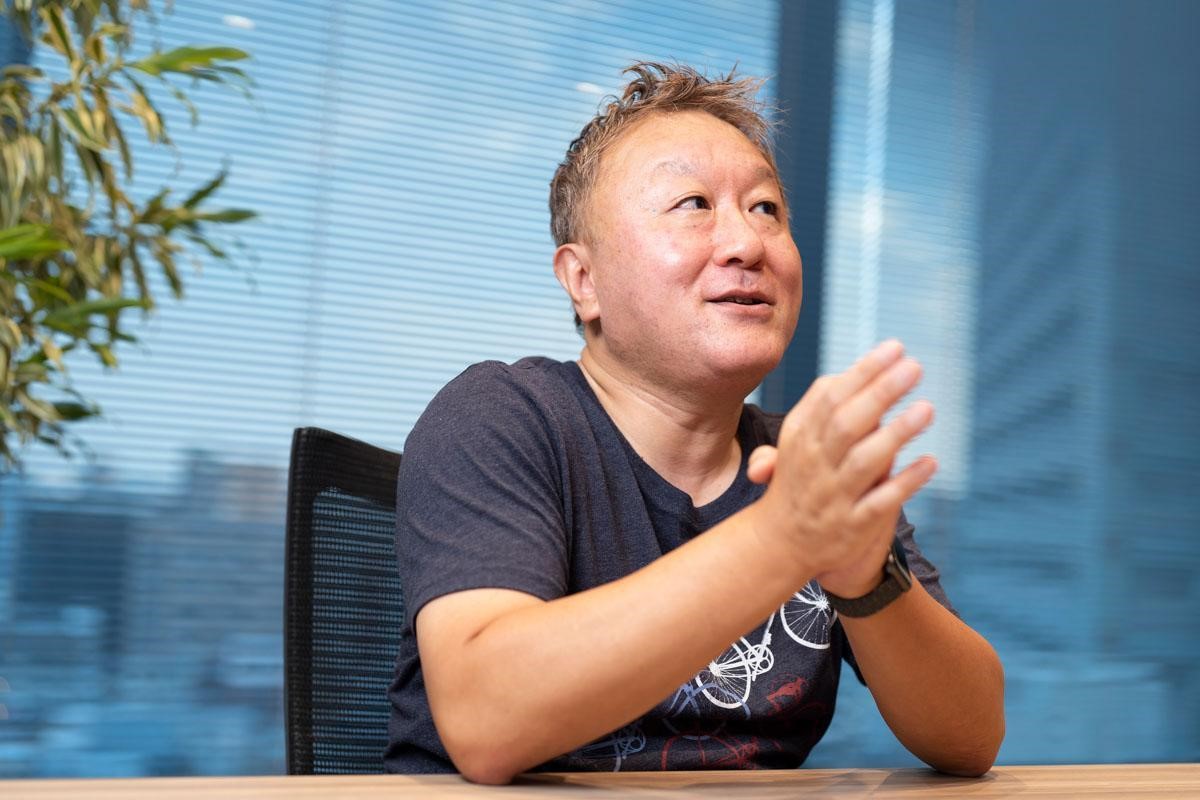
――Have your hiring practices changed?
Quite a bit, yes. First off, we’ve changed our attitude toward hiring. One of the main questions we ask those who apply is what their vision is over the next 5, 10, and even 15 years.
Even mobile games take two to three years to make, and if someone is looking to create a game for PC or a next-generation console, they can expect it to take three or four years. If you include updates after release, you’re looking at working alongside the same team for a good five or six years, possibly longer. That’s going to be difficult unless you have a team that shares a vision.
On a side note, I’ve been told in the past about how someone who interviewed for Delightworks had a bad experience with an interviewer who seemed very arrogant. Companies need to establish a chain of command, but nobody is going to want to join the crew of a ship when the interviewers act overly conceited.
While it’s perfectly acceptable to make it clear a job will have its challenges, if you come off as arrogant during an interview, it means there is already some sort of issue with interpersonal relationships from the get-go. If you’re going to be recruiting members to join your crew, you’ve got to have the capacity to imagine what things will be like after sailing around the world with that person for five or six years. It’s imperative that you can consider the future visions of your fellow crewmen.
Anyone who applies to Lasengle who has read this, be sure to let us know on Twitter if you feel your interviewer seems arrogant during your interview. If that is the case, we will be sure that is the next subject for us to reflect on and improve.
The appeal of Lasengle as a company
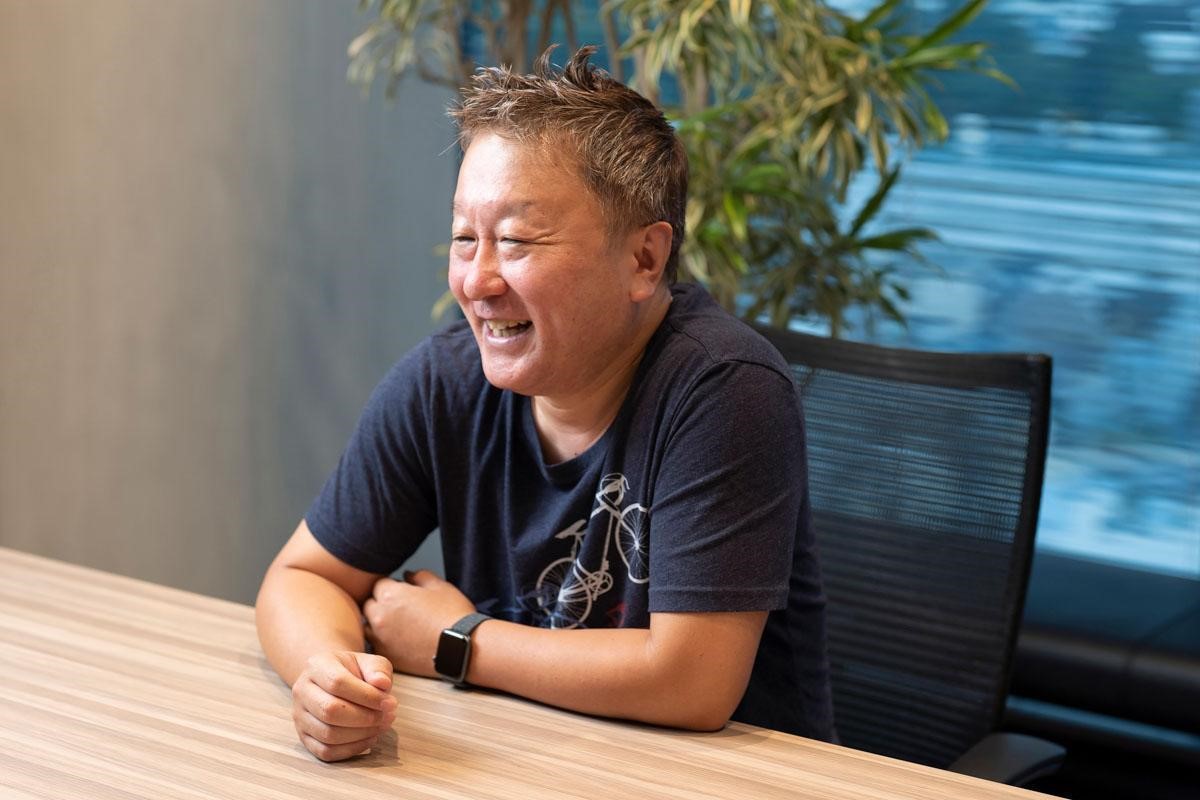
――In your opinion, what do you find most appealing about Lasengle right now?
It takes the best parts of larger organizations and wraps them into a smaller company which still has the benefit of flexibility. When it was announced back in February of this year that the company would join the Sony Group and become an affiliate of Aniplex, there were many people who were concerned.
Personally, I think this was a very good thing. You could say Sony Music Entertainment is the company that created the PlayStation, and many of the people who work there have said, “We are self-reliant, and the mentality that gave birth to the PlayStation in the 90s is still alive and well today.”
Many people say that anything is possible so long as you’re willing to throw your hat in the ring. This makes me believe this kind of corporate culture is a real thing. It’s very similar to what I am currently telling everyone at Lasengle. It’s only been a little over half a year since we became a group, but I think we’ll be able to hold on to the advantages small organizations enjoy while also incorporating the best parts of what large organizations have to offer. I feel like Lasengle is in a particularly good position right now.
Lasengle is still involved with the Fate series, but there is now a possibility of working with the various IPs owned by the Sony Group and Aniplex as well. When I mention ideas of turning certain IPs into games, a number of opinions come up and discussions expand rapidly.
I feel that joining the Sony Group has put us in a position where we are able to come up with more ideas. So long as you continue to be a creator at Lasengle, I’m confident you can continue making the four Cs—Change, Challenge, Chance, and Confide—a reality. I really do feel a sense of fulfillment being where I am now.
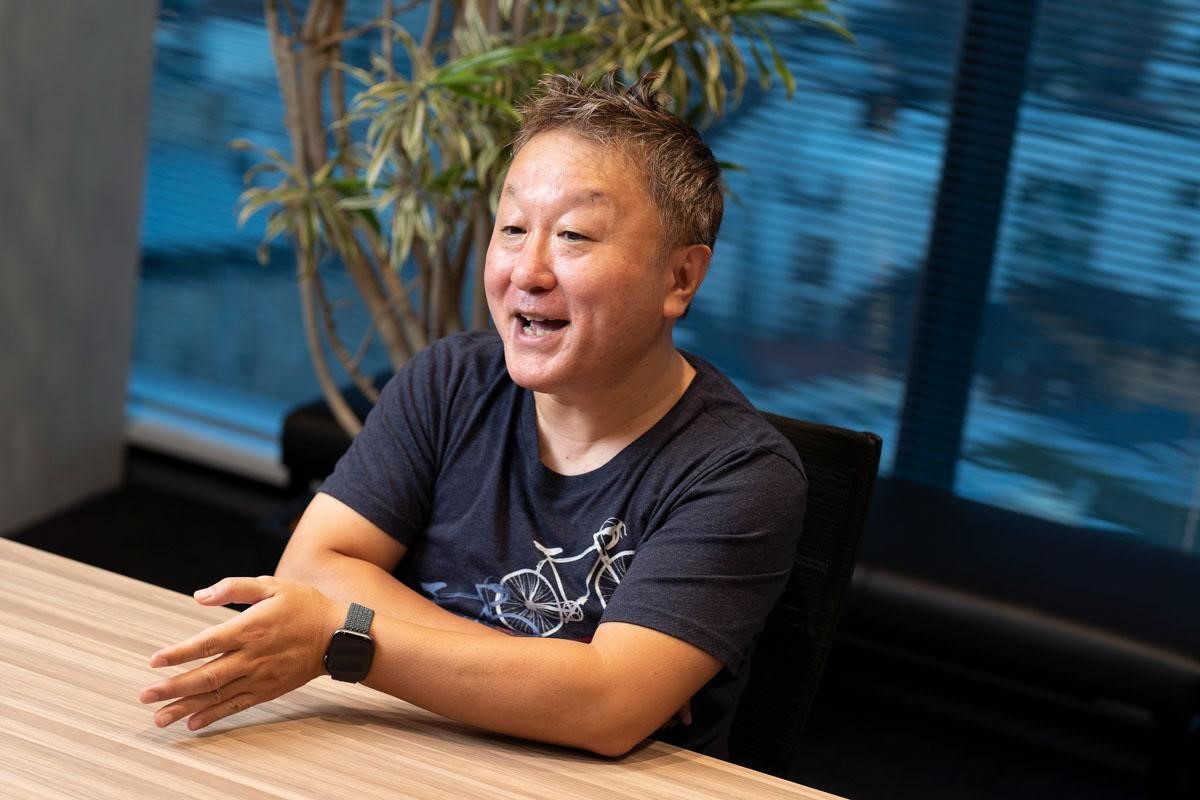
――Thank you so much. Is there anything you would like to say to those considering applying for a job at Lasengle?
If you tell me you want to create a game, or that you want to finally complete an idea you’ve had for a long time, Lasengle is the place with the potential to realize those dreams in a shorter span of time. When you compound the desires of everyone, it makes it even more likely an interesting project will become a reality. We can start things off with a small budget. At other companies, it’s normal for proposals to undergo many levels of review, requiring approval from many different people. Here at Lasengle, however, you’ll have the chance to get started on your project right away.
So, if you’re looking to create a game, why not ask Lasengle for an interview? I welcome you to come see how things work here for yourself so you can make your decision. If things are better than you’d pictured, I’d be thrilled to see you remove your tinted lenses so you can see past any preconceived notions you might have carried. And even if you end up joining a different company in the end, if you find that things don’t go the way you had hoped, you’re always welcome to come knock on Lasengle’s door once more.
If possible, we would love to work with people from all over the world who share a passion for creating things. While it’s true we don’t yet have many members who can speak English very well, we do plan on implementing a system that will assist staff who wish to improve their English skills. In doing so, we hope to create an environment better capable of spreading our passion to the rest of the world.
Regarding remote work, I feel we are really making strides in fully embracing this form of work. Ultimately, I want to make it so that there won’t be any problem even if I work remotely from Osaka. (Editor’s note: Lasengle’s office is located in Tokyo.) This makes it easier for some who are raising children or taking care of elderly parents. I think Lasengle is unique in that it offers an environment for those who want to create games to do so from wherever they may be, whether that’s Okinawa, Hawaii, or anywhere else in the world. Other companies may have started doing something similar, but we are becoming the sort of company that makes me think, “Man, I wish I’d known places like this existed when I was younger!” So please, if you’re interested in joining us, we’d be happy to welcome you as a part of the Lasengle team.
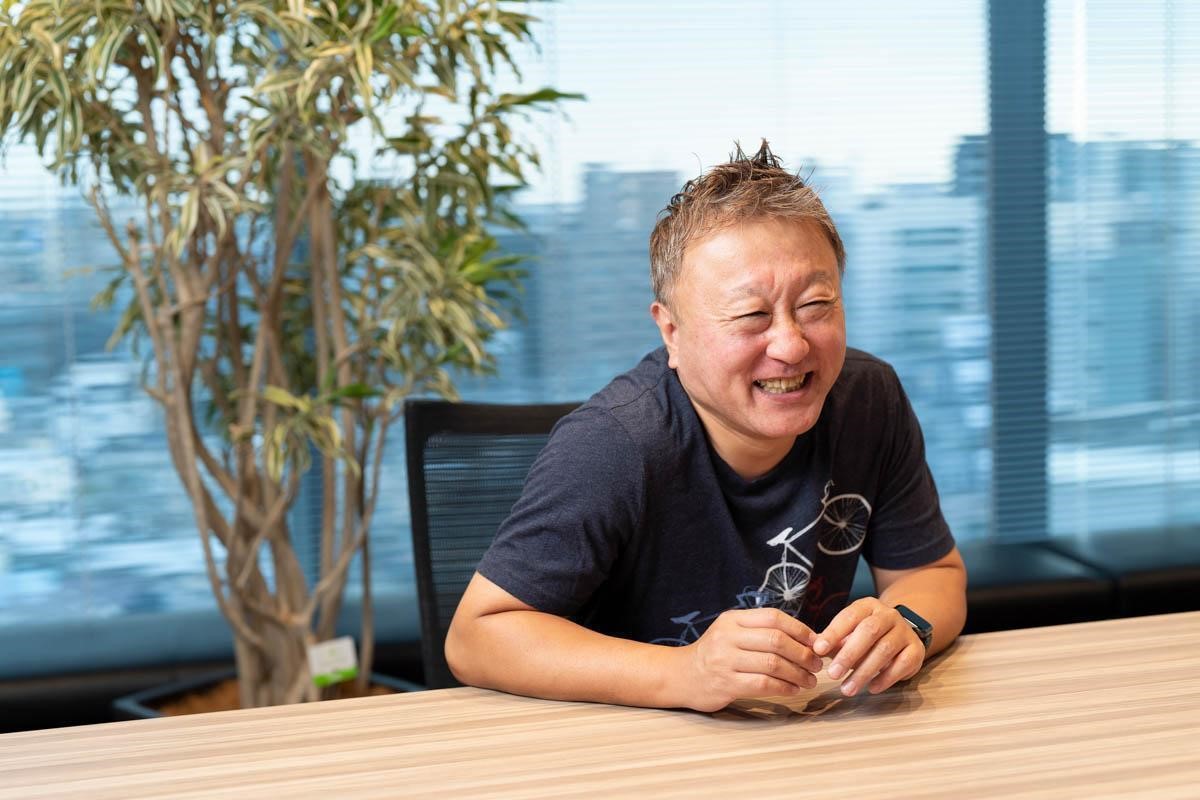
――Thank you very much for your time.
Translated by. Braden Noyes based on the original Japanese article (original article’s publication date: 2022-11-02 12:00 JST)

